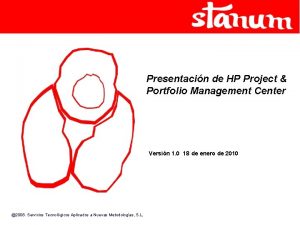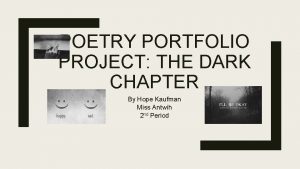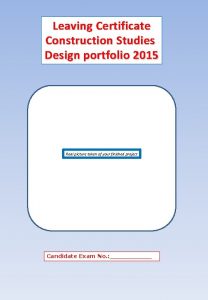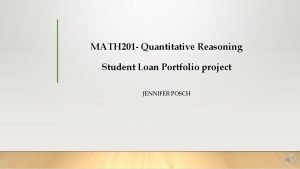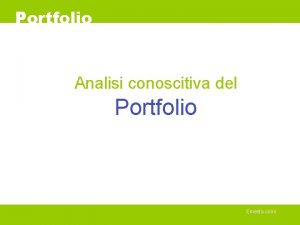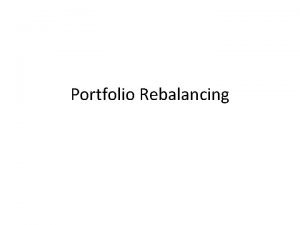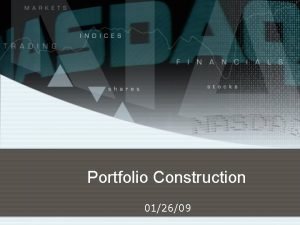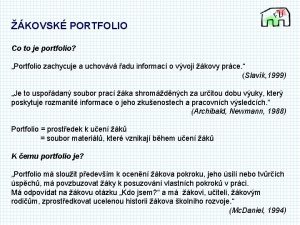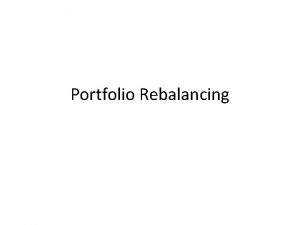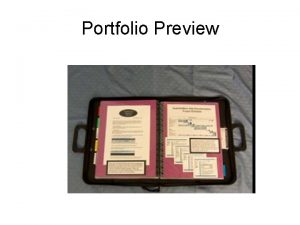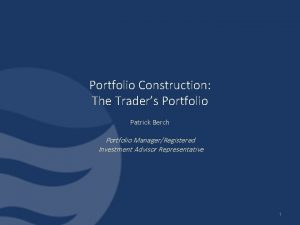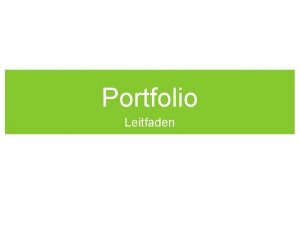Portfolio project Principles of Design Principles of Design
















- Slides: 16

Portfolio project Principles of Design

Principles of Design Ø The principles of design describe the way artists organize or arrange the work of art. Ø Often called composition Ø The Principles are: balance, emphasis, contrast, movement, pattern and unity

Balance: Ø Symmetrical: (mirror image) Ø Asymmetrical: (not symmetrical) Ø Radial: (a focus on the center) like a bicycle wheel)

Symmetrical balance: Mirror image equal on each side

Asymmetrical balance James Mc. Neill Whistler Arrangement in Grey and Black: The Artist's Mother, 1871, oil-on-canvas

Radial design in a Mandela: The Love union of Goddess and God, by Jack Haas

Emphasis: What is the main area of focus? Ø To make your design stand out use bright color or use more detail to show emphasis. Ø What has Mary Cassatt done to create emphasis?

Contrast: Artists try to create visual interest to make their work as exciting as possible. Contrast tone: Black shape on white background Ø Contrast colours (complementary) Contrast textures Van Gogh used strong contrasting colours and textures

Movement: Create the illusion of movement. Repeat and overlap the shape. Ø How have artists conveyed a sense of movement in their art? Ø How might you create a sense of movement in your design? Your design might be falling, jumping or emerging… Ø MM t n e m MM ove

Peter Paul Rubens: Lion Hunt, 1616, oil on panel Look at the spiral movement in Ruben’s painting

Pattern: Ø Artists repeat a motif to show pattern Ø Pattern could be repeated on the letters or in the background (behind the letters) Ø Create your own stencil so that your motif can be easily repeated. Antiqued Celtic Maze Wedding Band

Unity: Ø Unity means all parts work together. Ø Unified shapes are circles, figure eight, spirals ETC. Ø Have a shape repeat to form a circle or a spiral.

Vincent van Gogh “The Starry Night” June 1889. Oil on canvas Unity of colour and brushstrokes

Portfolio project What to do: Ø Use your first and last name. Ø 75% of the folder will be covered with colour and design Ø Use creative design and lettering Ø The back of the folder will have a quote or saying about life. This must be school appropriate.

General guidelines: Use at least one principle of design Ø Elements: line, shape, colour, texture, value (shading), space Ø The project will be completed in pencil crayon Ø

Use a word line to create more visual interest for the layout. Ø Sketch the design first before starting on the larger portfolio paper. Ø
 Project portfolio management guiding principles
Project portfolio management guiding principles Weebly teaching portfolio
Weebly teaching portfolio Security analysis and portfolio management project
Security analysis and portfolio management project Security analysis and portfolio management project
Security analysis and portfolio management project Current trends in project management
Current trends in project management Project portfolio matrix examples
Project portfolio matrix examples What is a portfolio management maturity model
What is a portfolio management maturity model Hp project management
Hp project management Behind the mask by melisa bernards
Behind the mask by melisa bernards Ppm tools gartner magic quadrant
Ppm tools gartner magic quadrant Project portfolio server
Project portfolio server Leaving cert construction portfolio examples
Leaving cert construction portfolio examples Project portfolio management hanford ibm
Project portfolio management hanford ibm Math 201 bryant and stratton
Math 201 bryant and stratton Project portfolio matrix dimensions
Project portfolio matrix dimensions Simplified scoring model in project management
Simplified scoring model in project management Math portfolio project
Math portfolio project







